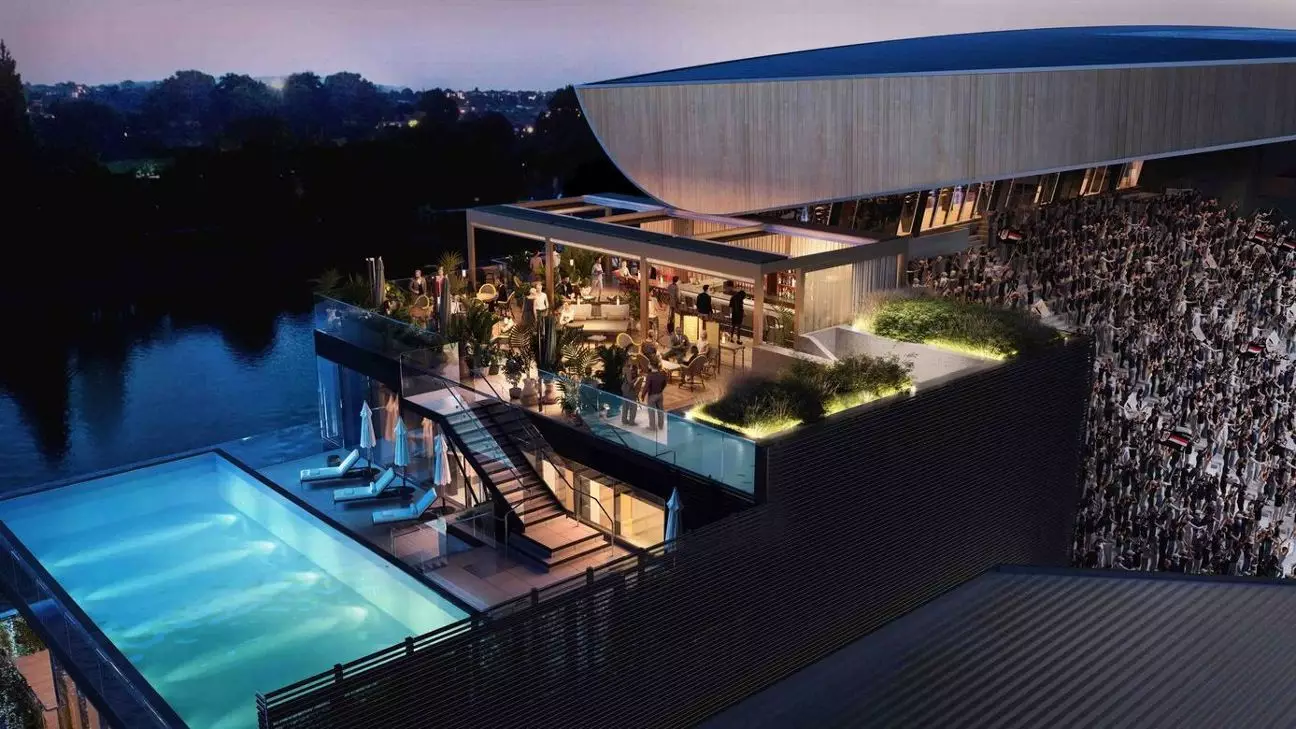One of the most talked-about developments in the world of soccer recently has been Fulham’s plans for a new and improved Riverside Stand at Craven Cottage. The addition of a three-tier “Sky Deck” atop the stand has certainly raised eyebrows. This luxurious space will offer premium food and drink options, as well as a rooftop swimming pool with stunning views of the pitch and the River Thames. Fulham’s bold move to introduce such a unique feature is commendable, but it also begs the question of whether such extravagance is necessary in the world of football stadiums.
Manchester City’s Tunnel Club
Another club known for its extravagant matchday amenities is Manchester City, with its exclusive “Tunnel Club” experience at the Etihad Stadium. Fans who pay extra for this privilege get to dine in a restaurant overlooking the players’ tunnel, giving them a behind-the-scenes look at the players as they arrive at the stadium. The experience continues outside as fans and players intermingle before kick-off, creating a unique atmosphere that blurs the lines between spectators and participants. While this level of access is undoubtedly enticing, one has to wonder if it detracts from the traditional matchday experience.
Real Madrid has also jumped on the luxury bandwagon with plans to include an exclusive nightclub at the renovated Bernabeu stadium. The “Skybar” will offer stunning views of the pitch during games and transform into a private club at night, complete with DJ sets and cocktails. While this concept may appeal to a certain demographic of fans, the question remains whether a football stadium is the appropriate setting for such nightlife activities. The marriage of sports and entertainment is not a new concept, but it raises concerns about maintaining the integrity of the game amid such distractions.
On the other end of the spectrum, West Ham United offers fans the opportunity to take a stadium tour via helicopter. This extravagant experience includes a behind-the-scenes tour of the training ground, a chauffeur-driven car ride to the stadium, a three-course meal, and VIP seats for a match. The price tag for such an experience is steep, highlighting the growing trend of catering to the elite few who can afford such luxuries. While this may be a once-in-a-lifetime opportunity for some fans, it also reinforces the idea of football as an exclusive club for the wealthy.
Mallorca has taken a unique approach to fan experience with their “Corner VIP” access, allowing fans to enjoy drinks and snacks at a bar positioned just meters from the pitch. This innovative concept brings fans closer to the action in a way that is unparalleled in other stadiums. However, it also raises questions about the impact of such amenities on the overall atmosphere of the stadium. Will fans become more focused on the luxury experience rather than the match itself?
Lastly, German club St. Pauli has maintained its reputation for taking care of its supporters with a unique delivery service for its VIP fans. A miniature railway delivers currywurst directly from the stadium kitchens to premium seats, ensuring that fans are well-fed and taken care of during the match. While this quirky approach to hospitality is endearing, it also highlights the trend of catering to fans’ every whim, even at the expense of tradition and simplicity.
The world of soccer is evolving rapidly, with clubs offering increasingly extravagant matchday amenities to attract fans and generate revenue. While these developments may seem exciting and innovative, they also raise important questions about the future of the sport. Are we moving towards a model where football matches are more about entertainment and luxury than the game itself? Is there a risk of alienating traditional fans in favor of a more exclusive and elitist fanbase? As clubs continue to push the boundaries of what is possible in terms of matchday experiences, it is crucial to consider the impact of these changes on the sport as a whole.

Leave a Reply